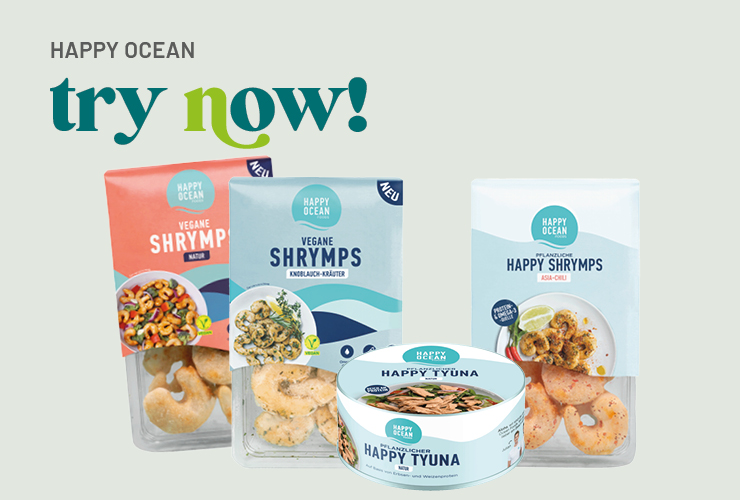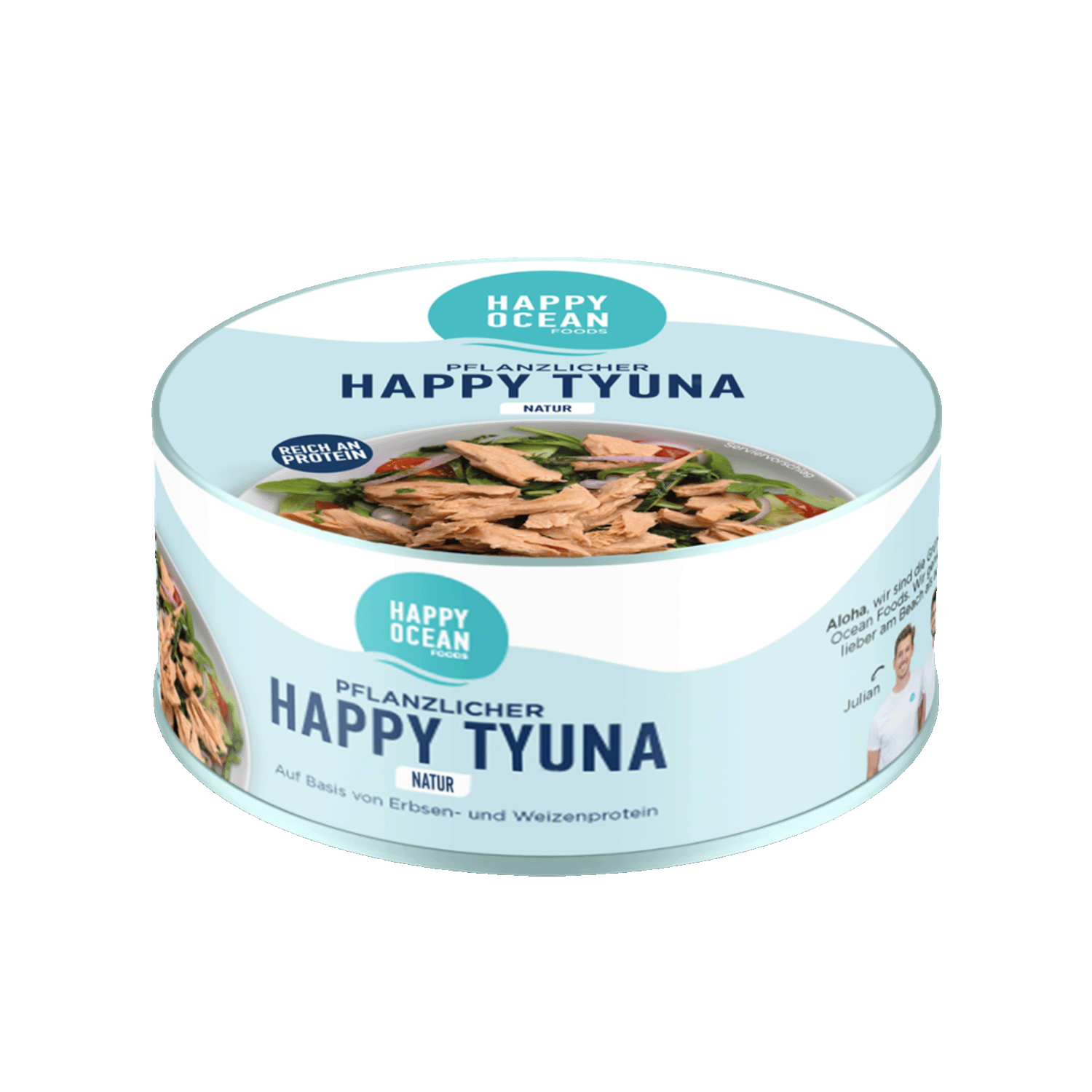Vegan alternatives to shrimp and seafood from Happy Ocean Foods
To protect the sea in all its facets – that’s the founding principle of Happy Ocean Foods. In addition to tangibly protecting nature and the environment, that includes emotions, smells, vibes and, last but not least, flavours. With its vegan alternatives to shrimp and seafood Happy Ocean Foods wants to do its part to preserve the enjoyment of the ocean without destroying it. In other words: fish belong in the ocean, not on plates. And to keep marine habitats thriving and plates full of exciting options, diets need to change. Spoiler alert! The solutions tabled by Happy Ocean Foods are absolutely delicious… and truly sustainable!
A taste of the sea – vegan and sustainable
In 2019, Robin and Julian founded Happy Ocean Foods to make a difference. The venture sees the two boys combine two crucial elements: the fun they’ve had surfing seas around the world, and the rationality and pragmatism it takes to have an impact. The products themselves take care of the fun part: tasty vegan soya protein-based shrimp, delicately salty in flavour and wonderfully firm to the bite, brings the smells, tastes and emotions of the ocean to your kitchen at home. Whether the Natural or Provençal version – seafood alternatives that taste this good guarantee good vibes on every plate.
Two founders with heart and hand
The pragmatic part is calculating and logical: the global population will have risen to ten billion by 2050. To feed everyone, we will have to harness the unbelievable potential of plant-based foods. They are sustainably scalable and, with countless species, offer an inexhaustible wealth of flavour variation. Happy Ocean Foods is taking a key first step towards this, and it’s taking a hands-on approach with its partner CleanHub: for every kilo of plastic produced for 150 g Happy Ocean shrimp packaging, Happy Ocean Foods collects one kilo of plastic waste in coastal regions of Indonesia.




















